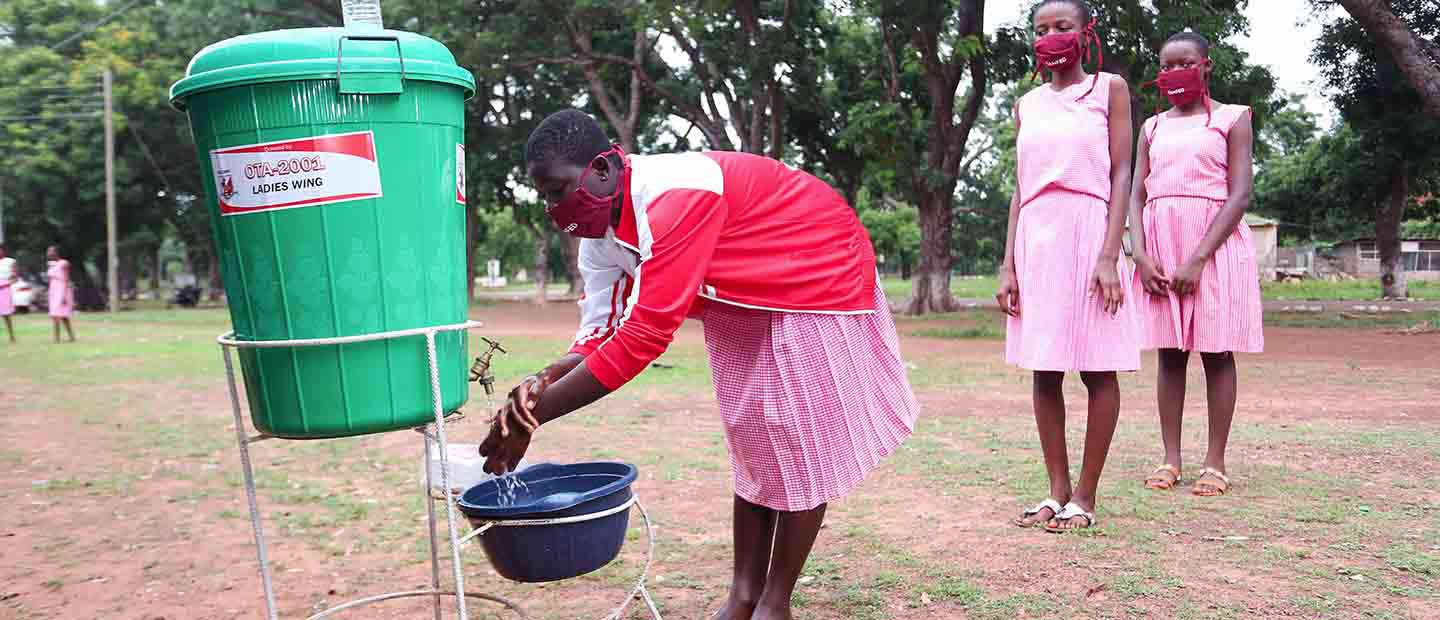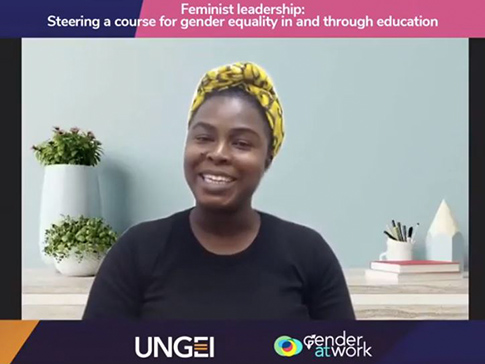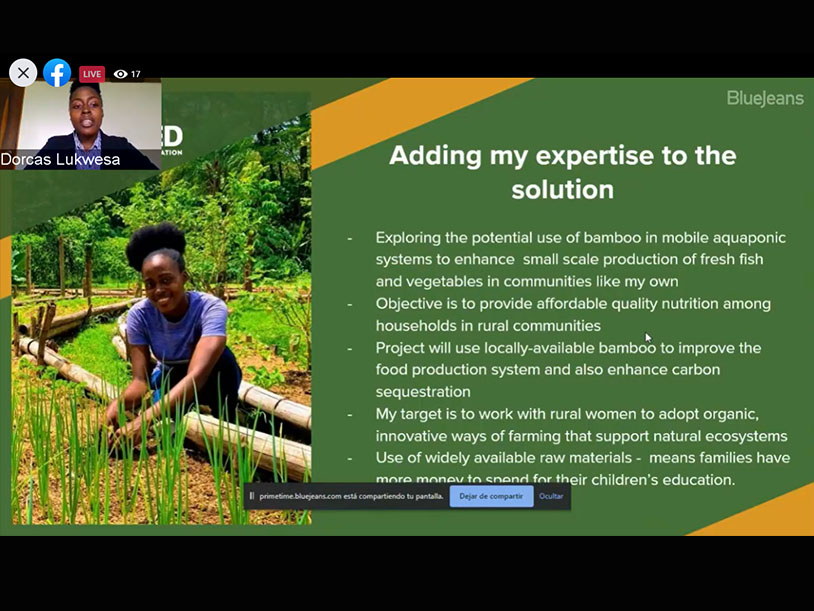
Grassroots leadership benefitting girls, communities, and our planet

CAMFED is in the unique position of being able to draw on a pool of 178,000 experts — young women supported through school by CAMFED, who understand intimately the link between girls’ education, social justice, gender equality and climate action.
Last month, members of our network of women leaders — the CAMFED Association — represented our movement at a number of high-profile, international fora. They highlighted the importance of grassroots expertise and action to address the urgent challenges girls face in the wake of the pandemic.
During this COVID period, we have seen how girls are disproportionately affected. The risks to girls go beyond the virus — including child marriage, early pregancy… Our communities have home-grown, relevant solutions which can help us to keep our children safe.
Faith Nkala, National Director, CAMFED Zimbabwe and founding CAMFED Association member
Speaking during the ‘Preparing Safe Schools Webinar’ hosted by the Higherlife Foundation, CAMFED Zimbabwe’s National Director Faith Nkala (once herself supported through school by CAMFED) underscored that supporting the most marginalized — including girls and students with disabilities — to return to school in a COVID safe manner, is a matter of justice.
These thoughts were echoed by Ruth Tawiah, a CAMFED Association member in Ghana, who contributed to a United Nations Girls’ Education Initiative (UNGEI) panel discussion on feminist leadership in education. She emphasized that once girls are in the classroom, they should be able to recognize their own stories in the learning materials used by schools, and be empowered to use technology — better preparing them to step up as leaders and policy-makers in future.
If the ability to put food on the table is taken away by challenges like pests, floods and droughts, it affects many things including children’s concentration in school and their chance to stay in school. These are some of the things that have motivated me to embark on this journey and promote climate-smart agriculture in my community.
Dorcas Lukwesa, CAMFED Association member, Zambia
Demonstrating the often unheralded benefits of supporting girls to learn and thrive, Dorcas Lukwesa — a CAMFED Association member and Mastercard Foundation Scholar at EARTH University — showcased her expertise in building resilience to and mitigating the effects of climate change at the World Forum for Democracy’s webinar on Equality, Democracy and Climate Action.
She is researching an aquaponics system, where plants and fish support each other, without pesticides, to improve food security and nutrition. Dorcas plans to introduce this system at CAMFED’s climate-smart demonstration farm in rural Zambia, using locally-available and sustainable bamboo, which also sequesters carbon.
Speaking on behalf of thousands of young women that make up CAMFED’s unstoppable change makers, Faith, Ruth and Dorcas exemplify the Multiplier Effect of girls’ education: When you support girls to go to school; to stay safe, learn and grow in confidence; and then to transition safely into secure and fulfilling livelihoods and leadership, they will support many more children in turn. And that benefits all of us, including our precious planet.
Our next event takes place on April 14, when Esnath Divasoni joins a live LinkedIn conversation with the United Nations Framework Convention on Climate Change (UNFCCC) at 5AM ET, 11AM CEST, 11AM CAT.
Don’t miss any of our advocacy and action for girls’ education. Follow us on Twitter, Instagram, Facebook and LinkedIn.



